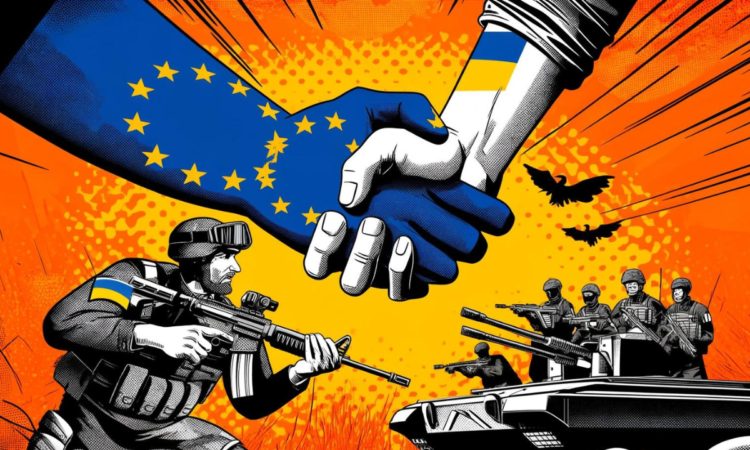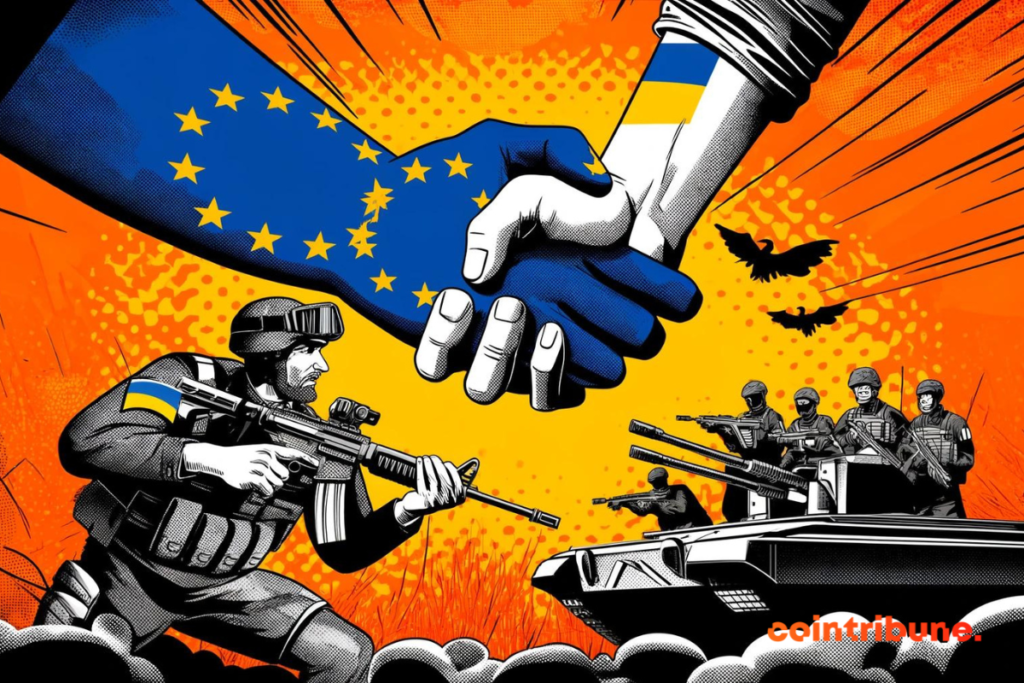
Wed 24 Jul 2024
3
min of reading 
Facing a prolonged war, international economic strategies are taking a new turn. The European Union has announced an ambitious plan to use the accumulated interest on frozen Russian assets to support Ukraine. This initiative has triggered a strong reaction from the Kremlin.

European Union announcement and Russian reaction
Earlier this week, the European Union, through its high representative, Josep Borrell, confirmed the upcoming transfer of 1.4 billion euros in military aid to Ukraine. This amount will be funded by the interest on frozen Russian assets. The affected assets include various types of investments in which the Russian central bank had invested. These are mainly in the form of bonds and other securities.
The accumulation of this interest, estimated between 15 and 20 billion euros by 2027, is seen by the EU as a crucial source of funding for the Ukrainian war effort. However, this initiative is viewed by Russia as a threat to the stability of the global financial system. The Kremlin immediately labeled this decision as a “theft”. It considers this measure as a blatant violation of property rights and international law.
Economic countermeasures considered by Russia
The Russian Ministry of Foreign Affairs, through Maria Zakharova, mentioned a “broad arsenal” of economic and political countermeasures. These measures could include the potential confiscation of Western assets in Russia. This aggressive stance underscores Russia’s willingness to strongly retaliate against what it sees as unjust Western initiatives.
The financial standoff between the EU and Russia could lead to major repercussions on international relations. It could also affect the global perception of sanctions and asset freeze measures. The outcome of these tensions could also influence international economic stability. It can notably redefine the norms of economic conflict in wartime situations.
This situation illustrates the complexity of modern wars where the lines between battlefield combat and economic confrontations are increasingly blurred. While the EU seeks to bolster Ukraine, Russia is preparing its defense not only on the battlefield but also on the legal and economic fronts. The coming months will be crucial to observe the implications of these financial strategies on the long duration of the Ukrainian conflict.
Maximize your Cointribune experience with our ‘Read to Earn’ program! Earn points for each article you read and gain access to exclusive rewards. Sign up now and start accruing benefits.
Click here to join ‘Read to Earn’ and turn your passion for crypto into rewards!
Graduated from Sciences Po Toulouse and holder of a blockchain consultant certification issued by Alyra, I joined the Cointribune adventure in 2019. Convinced of the potential of blockchain to transform many sectors of the economy, I committed to raising awareness and informing the general public about this ever-evolving ecosystem. My goal is to enable everyone to better understand blockchain and seize the opportunities it offers. Every day, I strive to provide an objective analysis of the news, decipher market trends, relay the latest technological innovations, and put the economic and societal issues of this ongoing revolution into perspective.
DISCLAIMER
The views, thoughts, and opinions expressed in this article belong solely to the author, and should not be taken as investment advice. Do your own research before taking any investment decisions.






